The Eagle
 for battle sequences and some disturbing images.
for battle sequences and some disturbing images.
Reviewed by: Carissa Horton
CONTRIBUTOR
| Moral Rating: | Average |
| Moviemaking Quality: |
|
| Primary Audience: | Teens Adults |
| Genre: | Epic Adventure War Drama |
| Length: | 1 hr. 50 min. |
| Year of Release: | 2011 |
| USA Release: |
February 11, 2011 (wide—2,150+ theaters) DVD: June 21, 2011 |
| Featuring |
|---|
|
Channing Tatum … Marcus Aquila Donald Sutherland … Uncle Aquila Mark Strong … Guern Jamie Bell … Esca István Göz (Istvan Goz) … Cohort Centurion Bence Gerö (Bence Gero) … Celt Boy / Young Marcus Denis O'Hare … Lutorius Paul Ritter … Galba Zsolt László (Zsolt Laszlo) … Paulus Julian Lewis Jones … Cassius Aladár Laklóth (Aladar Lakloth) … Flavius Aquila See all » |
| Director |
|
Kevin Macdonald |
| Producer |
|
Toledo Productions (London, England) Film4 (London, England) Focus Features See all » |
| Distributor |

The year is 120 A.D. and a legion of 5,000 Romans went into Britain searching for glory. They were never heard from again. After this massive loss of Roman lives, Emperor Hadrian erected a massive wall, splitting Britain in half. The Romans possessed the South side, and no one ever crossed the wall into the Northern country. Fast forward about twenty years. Marcus Flavius Aquila (Channing Tatum) has just made Centurion in the Roman army. His chosen post is right near Hadrian’s wall. Why? Because his father led the fated 5,000 to their unknown doom.
Marcus exhibits extreme heroism in the face of adversity when Britons attack the Roman stronghold under his command. This heroism results in an injury severe enough that he is transported 200 leagues from his post. Healing comes slowly in the house of his uncle (Donald Sutherland) and while there, Marcus Aquila receives an honorable discharge for his masterful heroism and leadership of his men.
Marcus doesn’t want a discharge. He wants to cross Hadrian’s Wall in search of both his father, the 5,000 lost men, and the eagle standard of Rome they carried so proudly. But until he heals entirely, Marcus has no choice but to impatiently wait, attending sporting events with his uncle. As fate would have it, one of these sporting events alters the course of his future. A young Briton slave named Esca (Jamie Bell) must fight a man twice his size. Yet, he stands fearless before the jeering crowd, ready to accept death. Something in Esca’s pride touches a chord in Marcus Aquila. When everyone else yells “Death” and gestures with a thumb down, Marcus stands and shouts “Life” with his thumb up. Others follow his example, and Esca’s life is spared.
In a twist of fate, Marcus’ uncle purchases Esca to serve as Marcus’ slave during his healing. And with Esca’s purchase, a seed is planted in Marcus’ mind. He is healing, not rapidly, but steadily. Perhaps two men might accomplish what a squadron of men could not. Perhaps, Marcus and Esca would dare to cross Hadrian’s wall in search of answers and the Eagle, the standard of mighty Rome. Nothing will stand in Marcus’ way.
He demands answers, and so he sets out past the Hadrian wall with only Esca as his companion, a slave of a noble Briton house whose loyalties are tenuous at best.
These historic movies are always epic. In the case of “The Eagle,” I was truly surprised because it was not what I expected. I expected Hollywood filming and stylized acting. What the film delivered was an artistic quality where the story takes its time in the telling. Yes, there are battles, and they are very gruesome, but that is not the entire story. There are no monsters, no mythical beasts, just people struggling to survive. Neither side, the Romans or the Britons, are entirely in the right.
In the case of Marcus, he is not invading a culture. He is trying to recapture something that belongs to Rome, and he is doing so with only one companion. Not many men would attempt such a feat. Marcus’ goal is honor for his father’s name and the recovery of Rome for the eagle standard signifies Rome. It’s never easy to watch slavery in progress.
During this film, Marcus discovers a lot about himself, and about his slave. Esca becomes more than a mere servant in his eyes, as they journey together. He finally takes the shape of man, not a possession. As for the violence, much of it is psychological. Throats are going to be slit, but the camera pans away, sparing the audience the sight of gushing blood. Marcus and Esca eat a raw, skinned rat, at one point, because they’re so hungry and can’t risk a fire. Headless bodies hang from trees, an enormous glen is the sacrificial altar of thousands of men with their skeletons visible in mounds, the unseen defiling of corpses by removing their feet, and mention of men getting their hearts ripped out while still alive.
This is really a violent movie. Yet, the violence does not overwhelm the film. It’s not an endless stream of death and blood. It just matches the storyline, existing because it’s a part of the story, not the whole, just a part.
The best thing I can say is that there are no female characters. Oh, the tribes have women in Briton, and the Roman sporting events have women in the stands, but there is no romance, at all. Which is a rather refreshing change, since most of these Romanesque films are awash with scantily clad females. A couple of the men are seen in undergarments a few times, but nothing else.
I was disappointed to see a family in the theater with their 9-year-old son. A 9-year-old has his throat slit in the movie. This child in the audience didn’t need to see that, even though the camera does pan away! What I’m saying is that while “The Eagle” is excellent for history buffs, it’s not meant for families. This isn’t your typical epic with humor tossed in for fun. No, this is a strenuous and dangerous adventure where humor has no place.
Teenagers can handle it, sure, especially if they love Rome or those “Lord of the Ring” type epics. But little children have no place watching a movie where heads are lopped off and rats are eaten raw. Don’t expect the movie to be fast-paced like “Clash of the Titans” or “300,” because it’s not. The story unfolds calmly and on its own playing field. Action occurs, but not so fast that the adrenaline levels are in a continual state of spiking.
“The Eagle” won’t be the best movie of the year, but it’s a sincere look at a vague part of English history. We don’t know what the Celts were really like in 120 A.D. This is just a guess! Channing Tatum and Jamie Bell share testosterone levels and a strange chemistry that grabs the audience by the collar and pulls them into the story. We grow to care about both of their characters, wishing both would survive and that they didn’t have to be at odds with one another. It’s exciting to see Jamie Bell in a new film! The last movie I saw with him was “Nicholas Nickleby” in 2002. It’s high time he had a heroic role.
As for Channing Tatum, “The Eagle” was a great introduction for me. I’ve never seen him in anything else. I can honestly say, I came away with an appreciation for his talent and an excitement to watch him progress in the world of acting.
“The Eagle” isn’t for everyone. The violence will turn some people away, and so it should, but there is no sex, and the language is minimal. For historians, like my sister who went with me, it’s an interesting take on what might have happened at Hadrian’s wall. I loved it, she loved it, and from what I could tell, so did most of our audience.
Violence: Heavy / Profanity: Minor / Sex/Nudity: None
See list of Relevant Issues—questions-and-answers.


In one particular scene, the Roman soldiers under the lead of Marcus Aquila (Tatum), form what was commonly called “the Tortoise” or the Testudo defensive formation. It is a tactic in which the unit essentially turns itself into a walking tank, with shields above, behind and in front. The scene was brilliantly executed. And one could not help but be struck by the devotion it took for the soldiers in that kind of formation, not to break rank.See all »
Moral rating: Average / Moviemaking quality: 4½
Moral rating: Average / Moviemaking quality: 5
Throughout this film, I just kept marveling over how close it was following the book. Normally, it would have bugged me that the Romans had American accents; but I thought it worked for this movie, because it helped emphasize the difference between the Romans and the Britons. I would totally recommend it, whether you’ve read the book or not. WARNING TO ACTION MOVIE BUFFS: You might get bored.
Moral rating: Better than Average / Moviemaking quality: 4½
Don’t take your kids to see it! But if you’re just hanging with the guys, or want to get a couple buddies (or girlfriends) together and see it, it’ll be worth the money you pay!! Biblically, this movie had one objectionable point, and that was that of language usage! But, I could only count 3 instances where that was an issue.
Moral rating: Excellent! / Moviemaking quality: 5
Moral rating: / Moviemaking quality:
Spiritually content: Marcus prays to Roman gods, and the Britons have their gods. Even though that may be considered offensive, it’s historically correct. Oh, and when Marcus and Esca are at the Seal People’s village, there is a ritual ceremony that feels voodoo-ish, but it’s fairly brief and isn’t, though the priest could possibly disturb some people. Again, not for the faint of heart!
Directly, there is nothing applicable for the believer, though there are many things that can be gleaned from it if you watch closely. There is some language, but considering the kind of movie this is, it’s the barest of barest minimum. I was impressed. And no romance! That was a refreshing relief, too.
Fans of the book may not be happy with the tweaks to the story, but I, a die-hard fan of the book, still loved it after the end. It was a very good movie. The acting was great, except *maybe* Mark Strong’s character, Guern. But besides that, two thumbs up! And the landscapes were so beautiful you might want to cry. The music is incredible, too.
Fans of Channing Tatum and/or Jamie Bell won’t be disappointed, either, I must say. Very brutal, but a very, very good film. It’s just as touching and arresting as the book. Anyone who can deal with blood and gut-wrenching acts of killing (one of the Seal People kills his own son… awful!), and love Roman Britain and high adventure, please go watch this movie! You’ll fall in love with it.
Moral rating: Better than Average / Moviemaking quality: 5
Moral rating: Better than Average / Moviemaking quality: 4½
Moral rating: Good / Moviemaking quality: 4
I recommend this movie if you don’t mind brief language or violence. The music was great.
Moral rating: Average / Moviemaking quality: 5
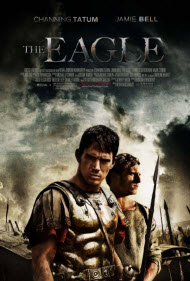

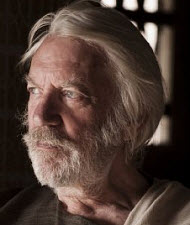
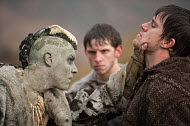
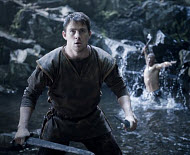
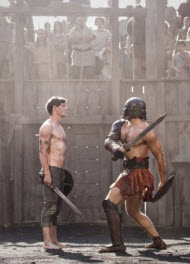
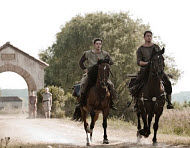
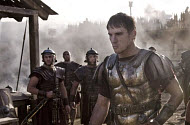
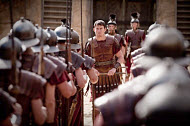
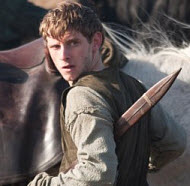
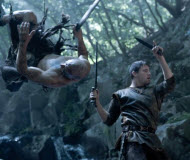
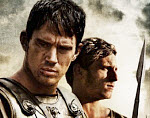
 About swords in the Bible
About swords in the Bible
However, this movie is not for the youngster because the violence.
My Ratings: Moral rating: Excellent! / Moviemaking quality: